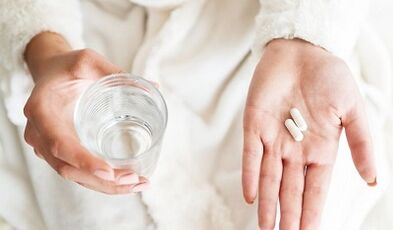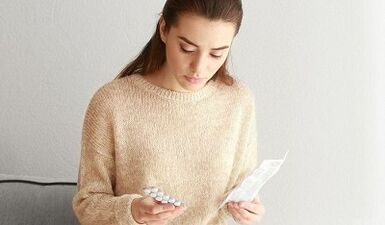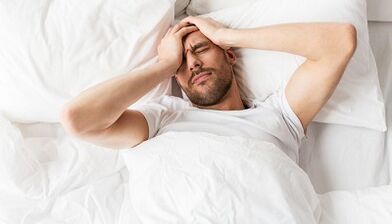People often face the problem with drugs: How long after antibiotics can you drink alcohol.It is difficult to say how long it takes to completely remove medication from the body - no doctor will definitely answer this question, since the effect of all antibiotics is different.In addition, there are diseases if the patient is not only prescribed antibiotics, but also a special diet.In this case, alcohol is prohibited.
About drugs

Antibiotics - products of life of microorganisms (these are most common mushrooms and their synthetic derivatives).They are used to treat infections caused by bacteria.All of them are produced in capsules and tablets because they are very comfortable.
However, there are general reception rules for all antibiotics:
- Depending on the severity of the disease and the characteristics of the patient's body, each drug can only be prescribed by a doctor.
- Antibiotics are not used as the treatment of viral diseases.
- The result of the effect of an antibiotic is taken into account in the first three days - if the medicine helps, it is not recommended to interrupt the treatment.If the symptoms continue, you should consult a doctor again.
- The course of treatment does not stop when nausea or unpleasant taste is manifested in the mouth.
- You cannot control the dose that the doctor has prescribed - antibiotics that are too small are dangerous for the human body.
Important!It must be remembered that self -refining is always dangerous for the body.
The period of time that is necessary to remove the antibiotic from the body depends on many factors.Each of the medication has its own properties, but most are excreted with urine by the kidneys from the body or (if the dose is small) in the form of bile through the intestine.In other ways, very small doses can be displayed: by sweat, sebum, salivary glands or with sputum.
If you have to find out how to remove a certain drug, you must read the instructions.This information is given in pharmacokinetics for each antibiotics.

Some medications can be excreted after 6-12 hours, but there are those who are delayed in the body for 1-2 weeks.
In addition, it must be taken into account that the muscle tissue quickly eliminates the antibiotic after it is fat and only then bones.
After a standard and, above all, successful antibiotics, alcohol cannot be drunk for 3-5 days.
However, there are exceptions in the form of chronic diseases if the course of treatment is repeatedly carried out.In this case, the discontinuation of alcohol is worth for 2-4 weeks.
Alcohol during treatment
If a person has prescribed a course of antibiotics, it is strictly forbidden to drink alcohol.Doctors find that more effective treatment for people who do not drink alcohol during the illness or afterwards.
- The most important reasons are the interaction of alcohol molecules and antibiotics.In this situation, toxic substances can be released.
- Against the background of alcohol, an antibiotic becomes less effective or useless.
- Hepatotoxic alcohol antibiotics (influence the liver).If you use them at the same time, the load of the liver is tightened.
If you can drink alcohol after taking antibiotics and how much is it best to ask your doctor to avoid unpleasant consequences.
In any case, there is a small group of antibiotics with which alcohol is permitted.This includes:
- Antimyotika;
- Penicillins;
- Heliomitsin;
- Ansomicine;
- Glycopeptides.
The speed of removal of funds
One person feels the toxic effect of antibiotics for a long time after treatment.
As already mentioned, most of it is displayed in the urine.Each drug is absorbed and besieged in the body of another time.
If you have such a chance, it is better not to take alcohol.
The fragile immunity after illness is not always ready for the toxic effects of ethyl alcohol.
As for her
The main factor that influences the elimination rate of the drug is its chemical composition.But the way of introducing an antibiotic is also important.The parcelation path (bypassing the digestive tract) looks more efficient and faster (withdrawn from 16 to 24 hours), but the specialist should be injected.At home, the Entral path (through the stomach intestine) can be taken in tablets and capsules at home.
The time required to remove the antibiotic from the body can depend on age - this happens more slowly in people of advanced age.In addition, excretion can inhibit the work of kidney, liver or genitator systems.Toxins are excreted faster with a plenty of drinks from liquid or fermented dairy products.
The consequences of the common reception

Often people drink without hesitation alcohol with antibiotics and claim that the annotation does not indicate how much time they cannot drink alcohol and whether a ban is generally prohibited.However, it should be remembered that pharmaceutical companies produce antibiotics for treatment and not to combine alcohol so that they do not check such reactions.
No doctor can predict the exact reaction in your body and how it affects the course of the disease.The use of alcohol during antibiotics can lead to serious consequences.Consider some of them:
- Violation of liver functions.In this case, the liver cannot remove any harmful products, but can be included in all toxins in their cells.
- Severe allergic reaction (Quinccs edema, anaphylactic shock).
- There can be poisoning of the body (nausea, vomiting, headache, cramps, abdominal pain).
- Heart problems can occur, a stroke or a myocardial infarction.
- Increased or reduced blood pressure (blood pressure).
It must be remembered that ethanol is not split with a combination of drugs with alcohol.Hence the consequences: Most harmful substances of alcoholic beverages are accumulated in the organs and tissues of a person.
The most dangerous "cocktails"
Many antibiotics are not compatible with alcohol.For example:
- Fruitorchinolons, mix with alcohol, adverse to the nervous system and can bring them into a coma.
- Tetracyclics are delayed in the body for a long time, some liver cells can destroy, and therefore alcohol is being absorbed in three days.
- Aminoglykosides can be the cause of complications for ears and kidneys (alcohol is possible after 2 weeks).
- The nervous system and liver are damaged by Lincosamide (alcohol is possible after 4 days).
- Macrolide can cause cirrhosis of the liver (alcohol is possible after 4 days).
All anti -TB medication cause hepatitis, in this case alcohol is prohibited.
First aid
The first action is an ambulance call.Determine how much time has passed since the poisoning has passed and save the remains of the substances that have led to poisoning.This helps the doctor.
If the victim is aware of it, it has to drink a large amount of water and then cause vomiting by irritation of the back wall of the larynx.After the stomach has been washed, you have to give the victim a sorbenzentus (for example activated carbon).
Put the patient in a comfortable horizontal position, watch breathing and impulse.Wait for the arrival of the ambulance.
Result
Antibiotics are very serious medicine.A person who occupies antibiotics must clearly follow the instructions associated with these medication.Not all antibiotics can be combined with alcohol, at best the drug simply does not help and, in the worst case, can lead to death.

























